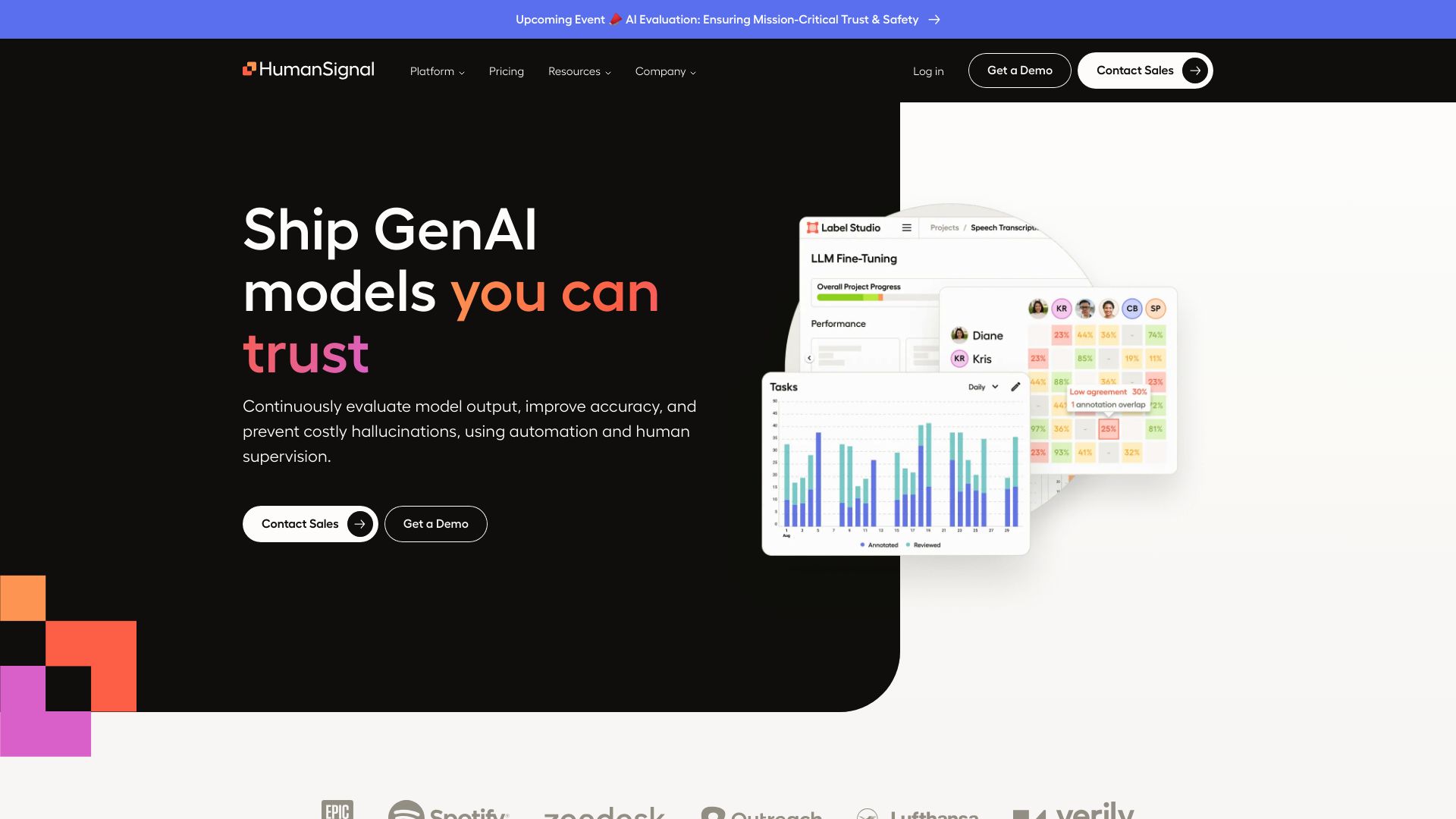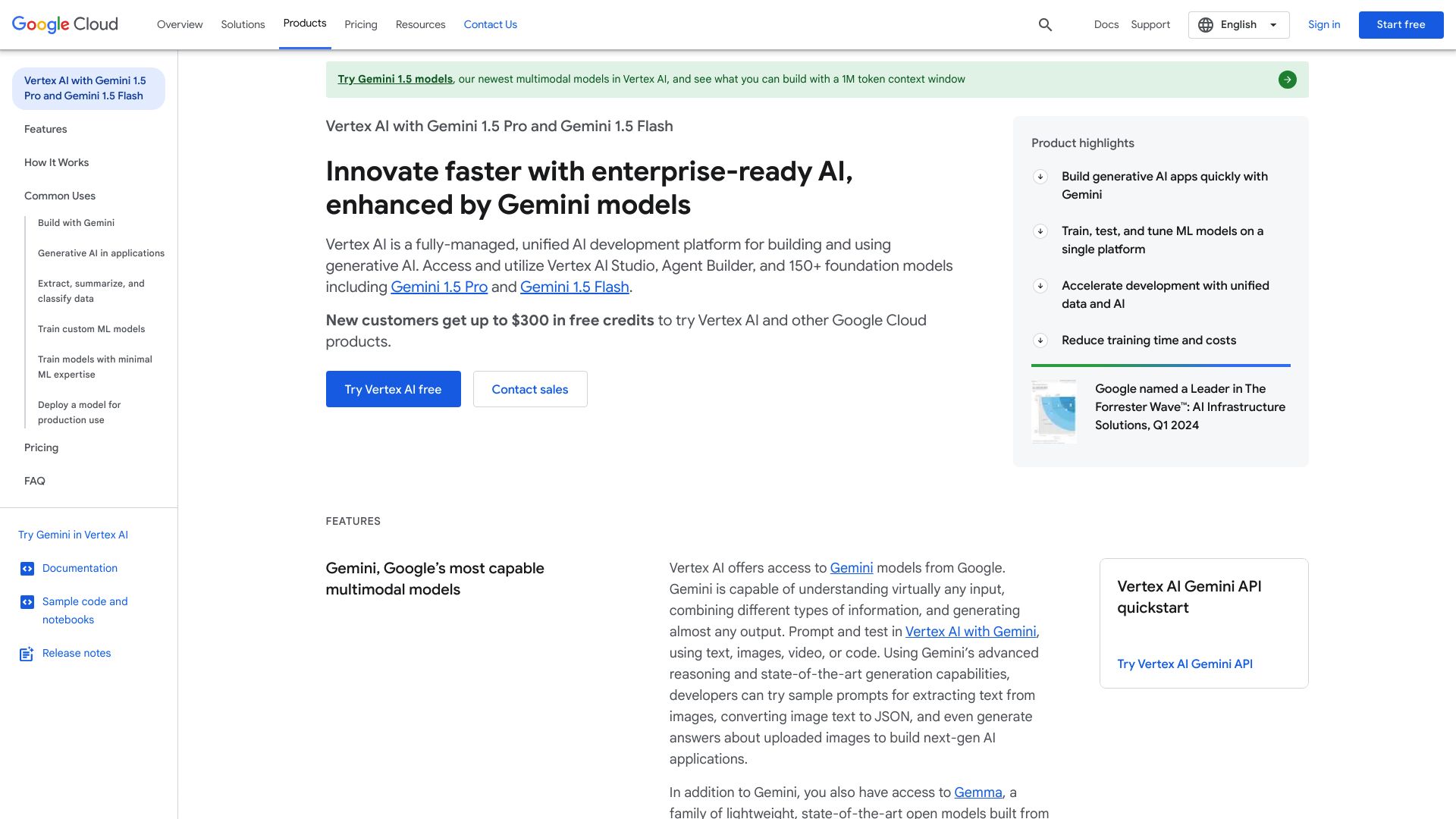Adala vs. Vertex AI: Features, Security, and Beyond
AI development platforms empower organizations to harness cutting-edge technology for data analysis, automation, and decision-making. This comparison explores Adala, an open-source framework for autonomous data labeling agents, and Vertex AI, Google’s comprehensive machine learning platform. We examine their core features, strengths, and limitations to help you determine which solution aligns best with your AI development needs.
Whether you’re a data scientist seeking efficient labeling tools or an enterprise looking to deploy advanced AI models, understanding these platforms’ capabilities is crucial for making informed decisions in today’s AI-driven landscape. Our analysis also introduces SmythOS, a versatile alternative that combines the best aspects of both platforms while offering unique advantages for a wide range of AI applications.
Adala Overview
Adala revolutionizes data labeling with its open-source framework for building autonomous AI agents. Developers harness large language models like GPT-3 to create specialized agents that learn and improve data labeling skills through continuous interaction and feedback.
Adala revolutionizes data labeling with its open-source framework for building autonomous AI agents… that learn and improve data labeling skills through continuous interaction and feedback.


Adala’s agents acquire modular, extensible skills such as text classification, summarization, and question answering. Users guide the training process by providing labeled ground truth datasets. A tight feedback loop incorporates human input to refine agent predictions, ensuring high reliability and adaptability.
Adala’s agents acquire modular, extensible skills… Users guide the training process… A tight feedback loop incorporates human input to refine agent predictions, ensuring high reliability and adaptability.
The platform’s architecture encourages community contributions through its modular components for skills, runtimes, datasets, and environments. This extensibility allows for rapid adoption of new techniques and continuous evolution of capabilities.
The platform’s architecture encourages community contributions… This extensibility allows for rapid adoption of new techniques and continuous evolution of capabilities.
While powerful, Adala focuses primarily on data labeling tasks. It lacks some features found in more general-purpose AI platforms, such as a visual builder or no-code editor. However, its specialized approach delivers significant efficiency gains and cost reductions for organizations with extensive data labeling needs.
Vertex AI Overview
Vertex AI empowers developers and businesses to build, deploy, and manage machine learning models at scale. Google’s comprehensive platform integrates data engineering, data science, and ML engineering workflows, streamlining the entire AI development process.


Vertex AI’s centerpiece, the Gemini multimodal generative AI model, handles text, images, audio, video, and PDFs. This versatility enables developers to create sophisticated AI applications like chatbots and content generators. The platform’s Model Garden offers a rich selection of pre-built models, including Google’s proprietary options and select open-source alternatives.
Vertex AI’s centerpiece, the Gemini multimodal generative AI model, handles text, images, audio, video, and PDFs. This versatility enables developers to create sophisticated AI applications…
Customization features allow users to fine-tune models for specific use cases, improving efficiency and response times. Vertex AI also provides tools for model management, including a centralized registry and feature store. These capabilities support the entire ML lifecycle, from development to production deployment.
While Vertex AI offers powerful tools for AI development, its complexity may pose challenges for users without extensive technical expertise. The platform primarily caters to enterprise-level organizations and experienced developers, potentially limiting accessibility for smaller teams or individual users seeking simpler AI solutions.
Vertex AI’s integration with Google Cloud services enhances its appeal for businesses already invested in the Google ecosystem. However, this tight integration might create potential lock-in concerns for organizations considering multi-cloud strategies. Users should weigh these factors against their specific needs and resources when evaluating Vertex AI as their AI development platform.
Feature Comparison
Adala and Vertex AI offer distinct approaches to AI development, with notable differences in their core components and security features. Adala focuses on autonomous data labeling agents, providing an open-source framework for building specialized AI models. Vertex AI, on the other hand, delivers a comprehensive platform for machine learning and AI development across various applications.
In terms of core components, Adala excels in creating autonomous agents for data labeling tasks, leveraging large language models like GPT-3. It offers modular, extensible skills and encourages community contributions. However, Adala lacks a visual builder or no-code editor, which limits accessibility for non-technical users. Vertex AI provides a more diverse set of tools, including the Gemini multimodal model and a Model Garden with pre-built options, catering to a wider range of AI development needs.
Regarding security, Vertex AI has a clear advantage with its integration into the Google Cloud ecosystem, offering robust data encryption and access controls. Adala’s documentation does not explicitly mention advanced security features like data encryption or OAuth implementation, which may be a concern for organizations handling sensitive data. This gap in security capabilities could be a significant factor for enterprises considering large-scale AI deployments.
| Adala | Vertex AI | SmythOS | |
|---|---|---|---|
| CORE FEATURES | |||
| Hosted Agents (Dev, Production) | ❌ | ✅ | ✅ |
| Visual Builder | ❌ | ✅ | ✅ |
| No-Code Options | ❌ | ❌ | ✅ |
| Debug Tools | ❌ | ✅ | ✅ |
| Multimodal | ❌ | ✅ | ✅ |
| Multi-Agent Collaboration | ❌ | ✅ | ✅ |
| Audit Logs for Analytics | ❌ | ❌ | ✅ |
| SECURITY | |||
| Data Encryption | ❌ | ✅ | ✅ |
| OAuth | ❌ | ✅ | ✅ |
| IP Control | ❌ | ✅ | ✅ |
| COMPONENTS | |||
| Huggingface AIs | ❌ | ❌ | ✅ |
| Zapier APIs | ❌ | ❌ | ✅ |
| All other APIs, RPA | ❌ | ✅ | ✅ |
| Data Lakes | ❌ | ✅ | ✅ |
| DEPLOYMENT OPTIONS (EMBODIMENTS) | |||
| Deploy as Webhook | ❌ | ✅ | ✅ |
| Staging Domains | ❌ | ✅ | ✅ |
| Production Domains | ❌ | ✅ | ✅ |
| API Authentication (OAuth + Key) | ❌ | ✅ | ✅ |
| Deploy as Site Chat | ❌ | ✅ | ✅ |
| Deploy as Scheduled Agent | ❌ | ✅ | ✅ |
| DATA LAKE SUPPORT | |||
| Sitemap Crawler | ❌ | ❌ | ✅ |
| YouTube Transcript Crawler | ❌ | ✅ | |
| URL Crawler | ❌ | ✅ | ✅ |
| PDF Support | ❌ | ✅ | ✅ |
| Word File Support | ❌ | ✅ | ✅ |
| TXT File Support | ❌ | ✅ | ✅ |
Best Alternative to Adala and Vertex AI
SmythOS stands out as the superior alternative to Adala and Vertex AI for AI agent development and deployment. Our platform combines powerful capabilities with unmatched ease of use, empowering users to create sophisticated AI solutions without extensive coding knowledge. We offer a comprehensive visual builder and no-code options, making AI accessible to both technical and non-technical users alike. Unlike Adala’s limited focus on data labeling or Vertex AI’s complex enterprise toolset, SmythOS provides unlimited use cases across industries.
SmythOS stands out as the superior alternative to Adala and Vertex AI for AI agent development and deployment… empowering users to create sophisticated AI solutions without extensive coding knowledge.
We excel in critical areas where Adala and Vertex AI fall short. Our platform features robust multi-agent collaboration, allowing teams of AI agents to work together seamlessly on complex tasks. We also provide superior debugging tools and explainability features, ensuring transparency in AI decision-making processes. Additionally, SmythOS offers unparalleled flexibility in deployment options, including APIs, webhooks, scheduled agents, and integration with popular platforms like ChatGPT.
Our platform features robust multi-agent collaboration… We also provide superior debugging tools and explainability features, ensuring transparency in AI decision-making processes.
Security is a top priority for SmythOS. We implement advanced data encryption, OAuth authentication, and IP control measures, addressing the security gaps present in Adala’s open-source framework. Our platform also supports a wide range of data sources and file formats, including PDF, Word, and TXT, enhancing versatility for various business needs.
SmythOS delivers a truly comprehensive solution for AI agent development. We combine the accessibility of no-code tools with the power of advanced AI capabilities, enabling users to create, deploy, and manage intelligent agents with unprecedented ease and efficiency. By choosing SmythOS, businesses and developers gain access to a cutting-edge platform that drives innovation and unlocks the full potential of AI across diverse applications.
Conclusion
Adala and Vertex AI each offer unique strengths in the AI development landscape. Adala excels in autonomous data labeling, providing an open-source framework that leverages large language models to create specialized agents. Its modular architecture and continuous learning capabilities make it a powerful tool for organizations with extensive data labeling needs. Vertex AI, on the other hand, delivers a comprehensive platform for machine learning and AI development, offering advanced features like the Gemini multimodal model and robust integration with Google Cloud services.
While both platforms have their merits, SmythOS emerges as the superior choice for a wide range of AI development needs. Our platform combines the best of both worlds, offering the flexibility of autonomous agents with the comprehensive toolset of a full-featured AI development environment. SmythOS’s visual builder and no-code editor make AI development accessible to users of all skill levels, while our advanced features like multi-agent collaboration and problem-solving capabilities push the boundaries of what’s possible with AI.
SmythOS stands out with its unparalleled deployment options, allowing you to integrate AI into your existing workflows seamlessly. Whether you need to deploy as an API, a website chatbot, or a scheduled agent, our platform has you covered. Our commitment to security, with features like data encryption and OAuth support, ensures your AI projects remain protected and compliant.
Ready to experience the future of AI development? Create a free SmythOS account today and discover how our platform can revolutionize your AI projects. With over 300,000 integrations and the ability to deploy agents anywhere, SmythOS is the key to unlocking your AI potential.
Last updated:
Disclaimer: The information presented in this article is for general informational purposes only and is provided as is. While we strive to keep the content up-to-date and accurate, we make no representations or warranties of any kind, express or implied, about the completeness, accuracy, reliability, suitability, or availability of the information contained in this article.
Any reliance you place on such information is strictly at your own risk. We reserve the right to make additions, deletions, or modifications to the contents of this article at any time without prior notice.
In no event will we be liable for any loss or damage including without limitation, indirect or consequential loss or damage, or any loss or damage whatsoever arising from loss of data, profits, or any other loss not specified herein arising out of, or in connection with, the use of this article.
Despite our best efforts, this article may contain oversights, errors, or omissions. If you notice any inaccuracies or have concerns about the content, please report them through our content feedback form. Your input helps us maintain the quality and reliability of our information.
